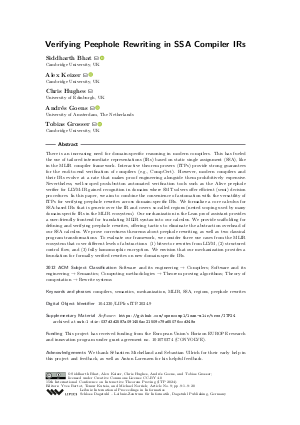LIPIcs.ITP.2024.9.pdf
- Filesize: 0.79 MB
- 20 pages

 Creative Commons Attribution 4.0 International license
Creative Commons Attribution 4.0 International license










































Feedback for Dagstuhl Publishing